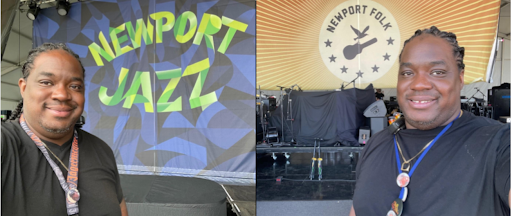Fieldston’s High School Chorus contributes meaningfully to the arts and culture of the Fieldston school. Every year Chorus holds two concerts, performing a diverse repertoire of songs. But the group is more than just its music. Headed by Kathleen Hayes for the past 30 years, the ensemble holds a unique sense of community, even within the broader Fieldston context. Despite only meeting as an entire group roughly 6 times per year (the rest of the time people just meet with their class of around 5-10 people), Chorus members certainly feel the collective spirit of the group. That sense of community is owed in large part to the leadership of Kathleen Hayes, Fieldston’s very own Upper and Middle School Chorus teacher.
One reason that students flock to Chorus comes from a love of singing. Form III student Jesse Kocher attests that music, “gives us a family away from the Fieldston community. We have that small Chorus family because we have that shared interest.” Certainly, the pleasure of singing and learning has attracted Chorus members to Chorus, but without a doubt, Hayes molded the eager group into what it is today.
Hayes ensures that Chorus remains an environment where people can learn while also feeling welcomed and comfortable. She hopes that when students come into Chorus class, they can feel like that space offers them “a total safe zone.” This aspiration of hers shines through the thoughts of her students. Form VI student Emma Medvedsek felt that Chorus, “doesn’t feel like a class, it kind of feels like I’m just hanging out with my friends.” For this reason, Hayes, using a similar comparison to Kocher, referred to Chorus as “a family within the family of Fieldston.” The group feels a unique closeness between its members thanks to the guidance and support of Hayes and pianist Ena Shin.
Hayes doesn’t want her students to get too caught up in the big group; she wants them to remember that they are individuals too. She named one of her goals: “trying to teach kids to be great ensemble people as well as soloists.” This she meant both literally and figuratively. She does teach her students to sing in an ensemble and by themselves, but she also seeks to extend her technical teaching skills to life teaching skills. Here she tries to make sure her students can thrive in a group setting and on their own, even outside of Chorus – that is a unique life lesson that Chorus students learn from Hayes. Similarly, as Hayes put it, “There is an empathy, there is a patience, there is a kindness that goes with letting other people learn.” Hayes also tries to foster acceptance of every member of the community, whether you are quick to learn the music or not.
On top of all the teaching and leading, Hayes also develops close relationships with her students. As a result of having students year after year, in some cases for upwards of five years, Hayes manages to build particularly unique and close relationships with her students, something she described as “special.” Hayes named the students as what has kept her at Fieldston for so many years. Form III student Kaelyn Mena pointed out, “A lot of [Hayes] is tough love, which I think is very encouraging.” And while Hayes may be close with her students, that doesn’t mean she won’t discipline them. She maintains a good balance between fun and learning.
When asked what her biggest goal was, Hayes said, “Creating literacy with the kids – music literacy.” She wants to make sure that students are well-versed in a variety of musical forms, teaching all types of songs throughout the year from Renaissance works to Taylor Swift. And to this goal (and all her others) she remains quite committed. For example, Mena described Hayes as “passionate with her work” while Medvedsek called her “very dedicated.” As a result, her classes remain productive while doubly functioning as a bonding and social experience.
But just as she expects and teaches her students to listen and be a part of a team, she also provides a model of how they should do it, often taking advice from her students. She explains, “It’s really fun when we start talking about what song we are going to do as a team.” Chorus largely does function as a team, as Hayes says, and that’s a huge reason why it attracts so much love. Students feel that they are given “agency,” in Hayes’s words, a characteristic of Chorus not necessarily present in many other classes. Students often enjoy this unique freedom, and in many cases it helps them grow.
Chorus acts as a fundamental part of the Fieldston arts program and the broader community, and it would be entirely different without Hayes. She has molded the group into what it is today, applying her leadership and musical skillset to create a fine program, producing enjoyable concerts, happy parents, talented students and a strong community.









